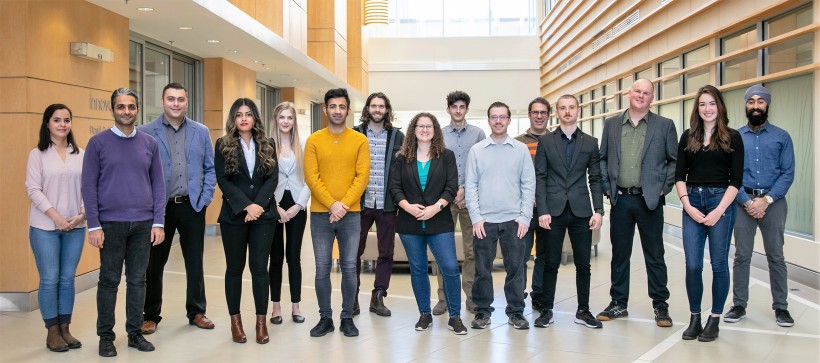Halifax advanced materials startup 3D BioFibR has borrowed $200,000 from the Atlantic Canada Opportunities Agency to fund improvements to its process automation.
The company has developed technology for manufacturing biofibres — naturally occurring fibres with commercial applications, such as spider silk and collagen — and CEO Kevin Sullivan said in an interview that he hopes to be generating revenue by the end of the year.
“The interest level has been high,” said Sullivan. “We've got multiple companies expressing interest in the product and the platform. And so I think we're going to be able to translate that into our first revenue opportunities.”
3D BioFibR already manufactures its fibres using a fully automated process, but Sullivan said the company’s plans include a “vision of continuous improvement” of its manufacturing capabilities, including via incremental efficiency improvements.
The company is the brainchild of Sullivan – who also founded drug discovery company Appili Therapeutics, now listed on the Toronto Stock Exchange – and Dalhousie University researcher John Frampton.
Sullivan’s 20-person team, which includes a mix of full-time and part-time staff, is based out of The Labs at Innovacorp on Dalhousie University’s Carleton Campus. When commercial sales begin later this year, manufacturing will also be based in Halifax.
He added that he plans to use a hybrid sales model, whereby some customers will license 3D BioFibR’s technology to use in-house while others will buy pre-made materials.
“Certain applications and certain product development we expect to be licensed,” said Sullivan. “Other products, where we’re incorporating our materials into other platforms, we look at that as a cost-plus revenue model.”
Cost-plus pricing is an economics term that refers to a firm setting its prices by calculating its combined fixed and variable costs per unit of a good and applying a markup percentage.
And to forestall regulatory complexity, the company will begin its foray into the commercial market by selling its fibres for applications that do not require government approval. As an example, Sullivan cited bioink, which is a substance used to create live tissue via 3D printing technology. More heavily regulated verticals will come later.
“The initial focus for us is on the unregulated markets, with an expectation that — as we get better and better at making products and gain revenue — we’ll move into more regulated parts of the market,” said Sullivan.
Sullivan said he plans to raise a Series A funding round later this year and is currently hiring. 3D BioFibR lists its job openings on its LinkedIn page.
Since its founding in July of 2020, the company has raised about $1.2 million of equity funding and about twice as much non-dilutive funding, Sullivan said.










